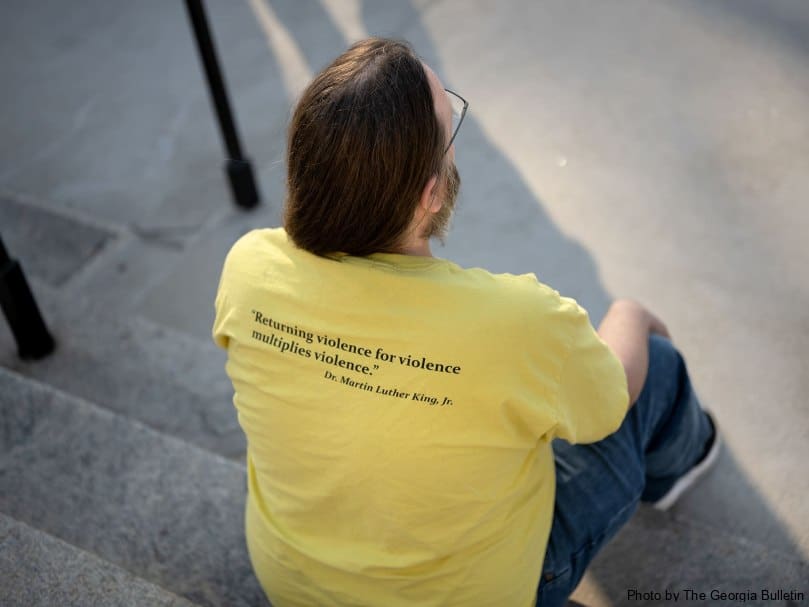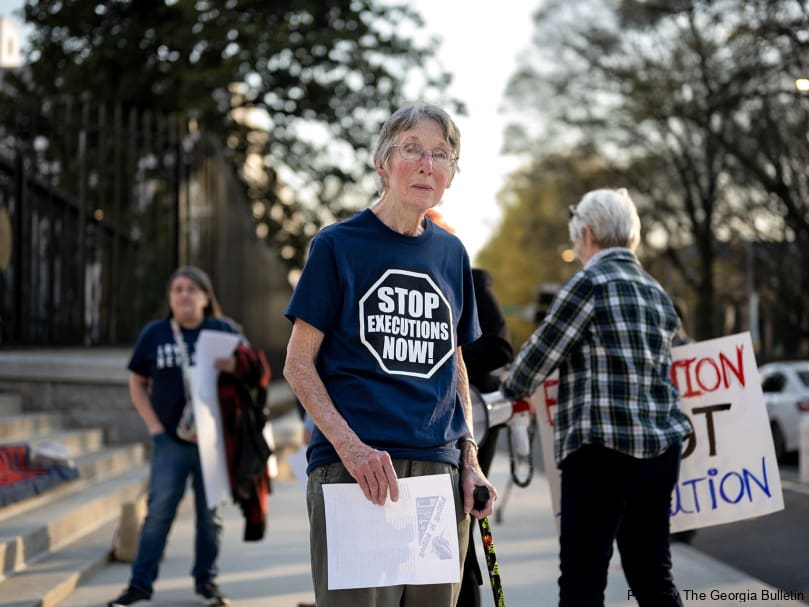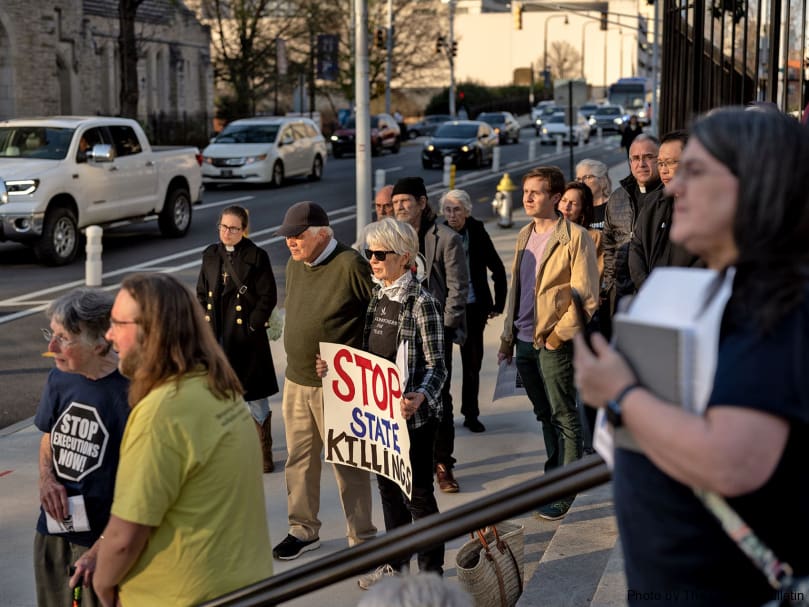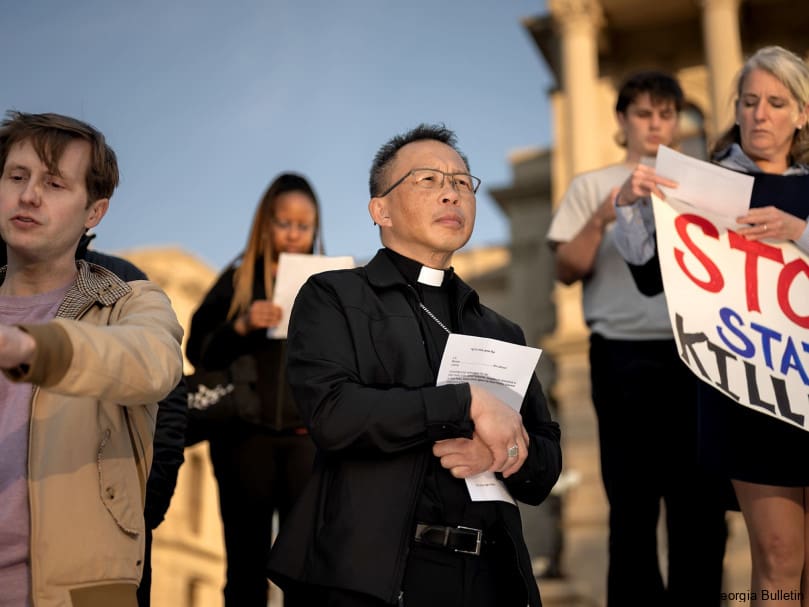The Georgia State Capitol building is pictured on March 20, the evening of a communal vigil for Willie James Pye whose execution was that night. Photo by Johnathon Kelso
Atlanta
Death penalty opponents gather for prayer vigils
By NATALIA DURON, Staff Writer | Published April 4, 2024
ATLANTA—The Georgia State Board of Pardons and Paroles denied clemency for death row inmate Willie James Pye at a specially called meeting Tuesday, March 19. He was executed at Georgia Diagnostic & Classification State Prison in Jackson on March 20.
The Georgians for Alternatives to the Death Penalty (GFADP) delivered a petition for clemency, which had more than 4,000 signatures the day before Pye’s execution.
On March 7, Archbishop Gregory Hartmayer, OFM Conv., wrote a letter to the Georgia State Board of Pardons and Paroles asking for clemency on the basis that Pye’s intellectual disability was not considered at trial.
Archbishop Hartmayer and the GFADP also said that his execution contradicted precedent in the United States Supreme Court case decision Atkins v. Virgina, which held that executions of intellectually disabled persons are prohibited.
Georgia is the only state that requires proof of intellectual disability beyond a reasonable doubt to prevent execution; other states use a preponderance of evidence.
Pye was convicted of the 1993 killing of Alicia Yarbrough and was sentenced to death for malice murder in 1996. The Pye execution was the state’s first in four years.
Vigils were held across the state the evening of the execution to pray for those facing the death penalty and for victims and their families. Bishop John N. Tran attended a vigil at the Georgia Capitol and led a prayer. St. Francis of Assisi Church, Blairsville, and St. Brigid Church, Johns Creek, also held evening vigils.





